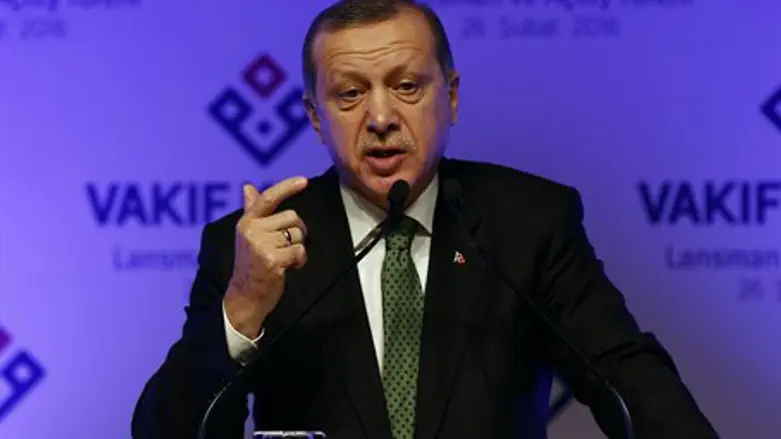
Normalization between Israel and Turkey must wait until the next Turkish government stabilizes, Jerusalem's envoy to Ankara confirmed late Monday.
Talks "will have to wait until the composition of the new Turkish government on May 22," Consul-General Shai Cohen stated to Reuters. "I believe it will take another round or two in order to conclude the deal ... Most of the issues between Israel and Turkey are already, to a certain extent, clear."
Turkish Prime Minister Ahmet Davutoglu is due to step down on that date, following a power struggle with President Reccep Tayyip Erdogan.
Davutoglu and the AKP won elections in June of 2015, but lost its parliamentary majority for the first time in more than a decade, forcing it to seek a coalition partnership.
After coalition-building efforts with the pro-secular party had collapsed, Davutoglu returned his mandate to Erdogan, who ultimately called for new elections which the AKP overwhelmingly won.
Steps toward normalization
Ties between Israel and Turkey have slowly healed years after the 2010 Mavi Marmara incident. That incident, which led to the cutting of diplomatic ties, involved a Turkish flotilla trying to breach the naval blockade. The main ship, later found not to be carrying humanitarian goods despite its claims, refused orders to turn around and forced IDF soldiers to board it where they were attacked and wounded by Islamists armed with knives and metal bars. The soldiers were forced to open fire to defend themselves, killing ten.
Under pressure from US President Barack Obama, Israeli Prime Minister Binyamin Netanyahu apologized for the incident to Turkey, and last December Israel reportedly agreed to pay $20 million in compensation to the families of the Islamists.
While ties were slowly improving after dozens of incidents involving anti-Israel and anti-Semitic statements from Erdogan, talks had stalled last month over Gaza - and after Turkey reportedly demanded Israel lift its import and export restrictions on the Hamas terror stronghold.
Israel's maritime blockade of Gaza, which is legal according to international law and is meant to prevent the influx of weapons to local terrorist organizations, has long been a point of contention in the talks. Another key point has been Turkey's unwillingness to act against the Hamas terror headquarters in Istanbul, which continues to function and plan terror attacks inside Israel.
Senior sources in the Israeli security establishment last month accused Ankara of playing a "double game," and "using" Israel so as to pressure Russia into being less belligerent as the two countries are in the midst of a tense standoff.